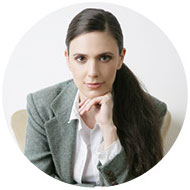Interview by Tansy Rayner Roberts.
 C.S. Pacat is the author of the best-selling Captive Prince trilogy. Born in Australia and educated at the University of Melbourne, she has since lived in a number of cities, including Tokyo and Perugia. She currently resides and writes in Melbourne.
C.S. Pacat is the author of the best-selling Captive Prince trilogy. Born in Australia and educated at the University of Melbourne, she has since lived in a number of cities, including Tokyo and Perugia. She currently resides and writes in Melbourne.
Her first series began its life as an original-fiction web serial, which attracted viral attention before being acquired by Penguin USA. The Captive Prince trilogy went on to become a USA Today bestseller after being published to commercial success and critical acclaim.
How has your life changed since the Captive Prince trilogy was published internationally with Penguin Random House last year?
The biggest change and the biggest privilege is that my books are now books, by which I mean they are now part of the wider conversation about books and literature.
Another change is perhaps purely psychological. Like many aspiring writers, I struggled with feelings of legitimacy, or with having the audacity to call myself a writer before publication. In fact we are all writers from the moment that we pick up a pen but the phase or writing before selling your first book requires this enormous effort of the self – of self confidence and self belief – in the face of uncertainty. Having relief from the uncertainty has been the lifting of a surprising weight. I think I didn’t know how heavy it was until it was gone.
There are other changes as well, and all of them are wonderful – I now have the privilege of being able to write full time, to travel, to meet other writers, to share knowledge and craft, all of that is invaluable to me. My experience has been that every opportunity taken leads to other opportunities, and I feel grateful for each one.
Captive Prince began life as a self-published serial which built a massive online audience before your publishing deal came along – is there anything you miss about publishing your stories yourself? Would you self-publish again in the future?
I’m a huge advocate for self-publishing, because I think it allows a platform for works that don’t fit the traditionally published mould. Those works may be fantastic in their own right, or they may be highly flawed but nevertheless allow communities to form around them, and new traditions of writing to spring up–from which something of immense value may emerge. Uninhibited writing spaces are the breeding ground of the new, and that is what self-publishing offers. It’s the utter freedom that I miss most about self-publishing.
Although I’m most likely to commercially publish books and series in the future, I will absolutely pursue self publishing in the future for occasional projects, particularly novellas and short stories – what’s known as the “hybrid model”. In fact I have a series of three Captive Prince short spinoffs that I will be self-publishing later this year.
What are you writing right now, and what can you tell us about it?
My next series is young adult fantasy with magic elements and some very intense relationships and connections between characters. That’s all I can say about it right now – it’s still in the planning stage, but I’m incredibly excited about it.
What Australian work have you loved recently?
I was really excited by Illuminae by Amie Kaufman and Jay Kristoff. It’s young adult sci-fi with a unique method of storytelling and presentation. Science fiction is thriving in YA, but often exploring Earth-based futures or planet-based storytelling. It’s fantastic to see an Australian book be one of those bringing space-based sci-fi to the forefront of the young adult genre. I can’t wait for a new wave of young adult space opera, and young adult that captures that spirit of space exploration that I loved as a teenager in series like Star Trek.
Which author (living or dead) would you most like to sit next to on a long plane trip and why?
My favourite author is Dorothy Dunnett, and I would give basically anything to sit next to her on a plane trip. She wrote historical fiction in the 1950s, at a time when the genre wasn’t considered particularly legitimate, but her writing is a plotting masterclass, and her set pieces and the way they hold tension are second to none. I would love to talk to her about craft – I feel that so often writers are alone in their learning, we are autodiadacts much of the time, desperately reverse engineering techniques from other people’s books. It would be such a privilege to learn from one of my heroes. Sadly, she passed away in 2001.